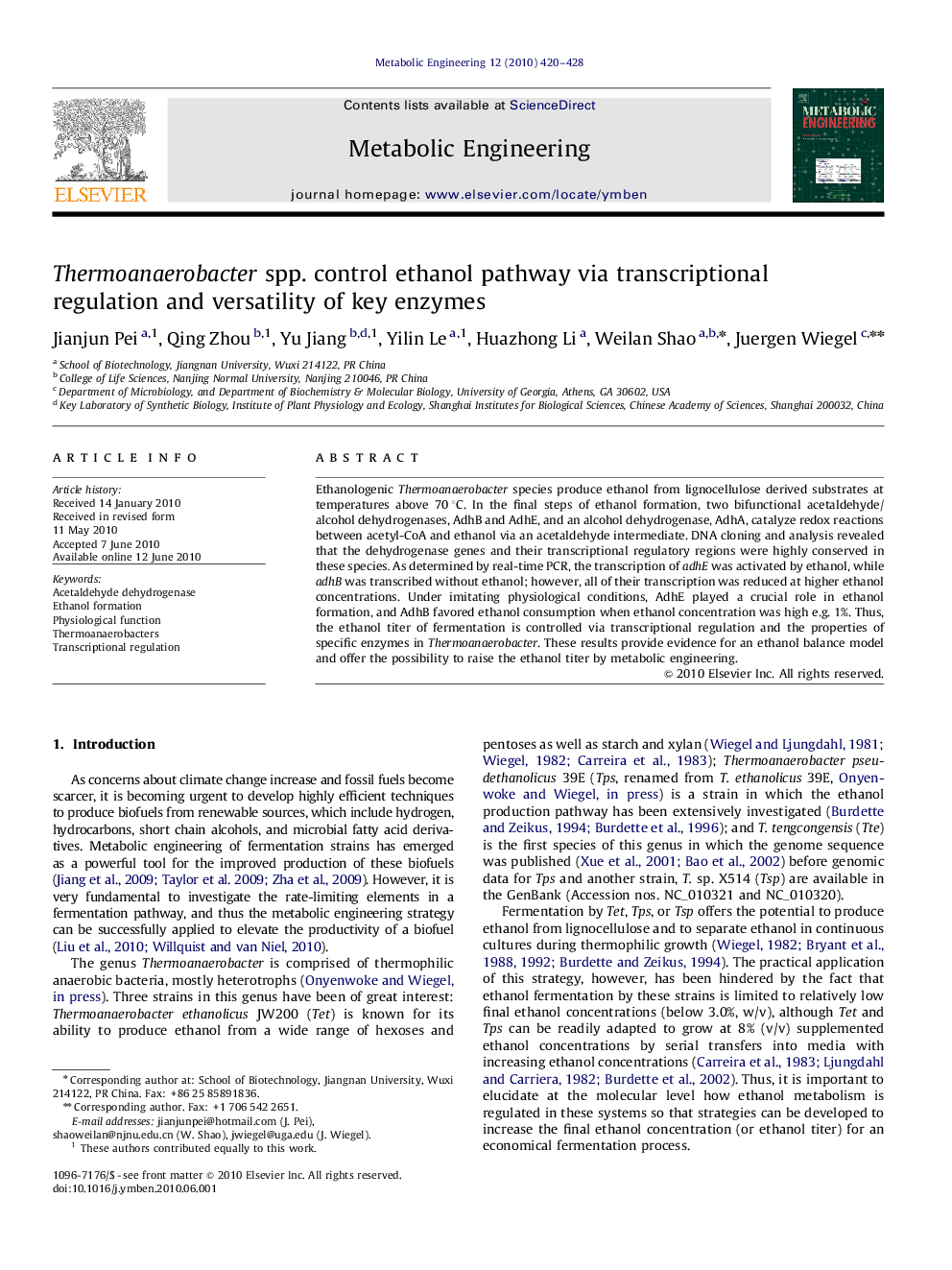| کد مقاله | کد نشریه | سال انتشار | مقاله انگلیسی | نسخه تمام متن |
|---|---|---|---|---|
| 31680 | 44829 | 2010 | 9 صفحه PDF | دانلود رایگان |

Ethanologenic Thermoanaerobacter species produce ethanol from lignocellulose derived substrates at temperatures above 70 °C. In the final steps of ethanol formation, two bifunctional acetaldehyde/alcohol dehydrogenases, AdhB and AdhE, and an alcohol dehydrogenase, AdhA, catalyze redox reactions between acetyl-CoA and ethanol via an acetaldehyde intermediate. DNA cloning and analysis revealed that the dehydrogenase genes and their transcriptional regulatory regions were highly conserved in these species. As determined by real-time PCR, the transcription of adhE was activated by ethanol, while adhB was transcribed without ethanol; however, all of their transcription was reduced at higher ethanol concentrations. Under imitating physiological conditions, AdhE played a crucial role in ethanol formation, and AdhB favored ethanol consumption when ethanol concentration was high e.g. 1%. Thus, the ethanol titer of fermentation is controlled via transcriptional regulation and the properties of specific enzymes in Thermoanaerobacter. These results provide evidence for an ethanol balance model and offer the possibility to raise the ethanol titer by metabolic engineering.
Journal: Metabolic Engineering - Volume 12, Issue 5, September 2010, Pages 420–428